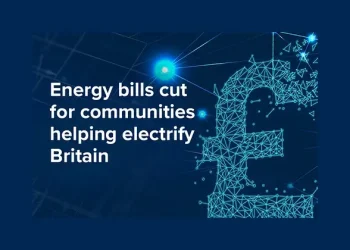The UK government has unveiled a £1.8 billion initiative to upgrade up to 170,000 homes in England with energy-saving measures, aiming to reduce energy bills and improve living conditions for low-income households and social housing tenants.
This effort is part of the Warm Homes Plan, contributing to the UK’s net zero carbon goals.
Energy Efficiency Upgrades for UK Homes
The UK government’s recent announcement marks a significant step towards enhancing energy efficiency across England.
By targeting low-income households and social housing tenants, this initiative aims to alleviate fuel poverty while supporting the country’s broader environmental objectives. The upgrades will include insulation, double glazing, solar panels, and heat pumps.
This program not only promises financial relief for families struggling with high energy costs but also aligns with the UK’s commitment to becoming a clean energy superpower.
By reducing reliance on fossil fuels, the initiative supports both economic growth and environmental sustainability.
Economic Boost from Green Initiatives
Beyond its environmental benefits, the Warm Homes Plan is expected to stimulate local economies by creating jobs in the green sector.
The investment in training and skills development will strengthen the workforce needed for the UK’s transition to net zero carbon emissions.
Industry leaders have welcomed this funding as a crucial step towards tackling fuel poverty and meeting net zero targets. The strong demand for such initiatives highlights their importance in improving living conditions while supporting economic stability.
Benefits for Residents
- Reduced energy bills through improved home efficiency
- Warmer homes leading to better health outcomes
- Increased property value due to modern upgrades
- Contribution towards national carbon reduction goals
- Job creation in local communities through green projects
- Enhanced quality of life for vulnerable populations
A Broader Context of Energy Efficiency Efforts
This initiative builds on previous government commitments like the Social Housing Decarbonisation Fund and Public Sector Decarbonisation Scheme. These efforts are part of a comprehensive strategy aimed at retrofitting millions of homes by 2030 to meet climate targets.
Minister for Energy Consumers, Miatta Fahnbulleh, said:
“Living in a warm, comfortable home should not be a luxury. It is a right that has been out of reach for too many people for too long.”
“By giving this funding to local authorities and social housing providers we are delivering on our promise to improve the homes of thousands of people across England.”
“As part of our Plan for Change, we are powering on with our Warm Homes Plan, upgrading cold and draughty homes so they are warmer, cleaner, and cheaper to live in.”
Tackling Fuel Poverty Head-On
The focus on low-income households underscores a commitment to addressing fuel poverty directly. By providing targeted funding, the government aims to ensure that vulnerable populations benefit from these improvements without bearing additional financial burdens.
Additional Reading
Final Thoughts
The Warm Homes Plan represents a pivotal moment in addressing both environmental challenges and social inequalities within England’s housing sector.
By investing in sustainable home improvements, the UK is taking concrete steps toward achieving its ambitious climate goals while ensuring that all citizens can enjoy comfortable living conditions.
Sources: UK Government, National Housing Federation, and Chartered Institute for Housing.
Ivan Alexander Golden, Founder of THX News™, an independent news organization dedicated to providing insightful analysis on current events, prepared this article.









